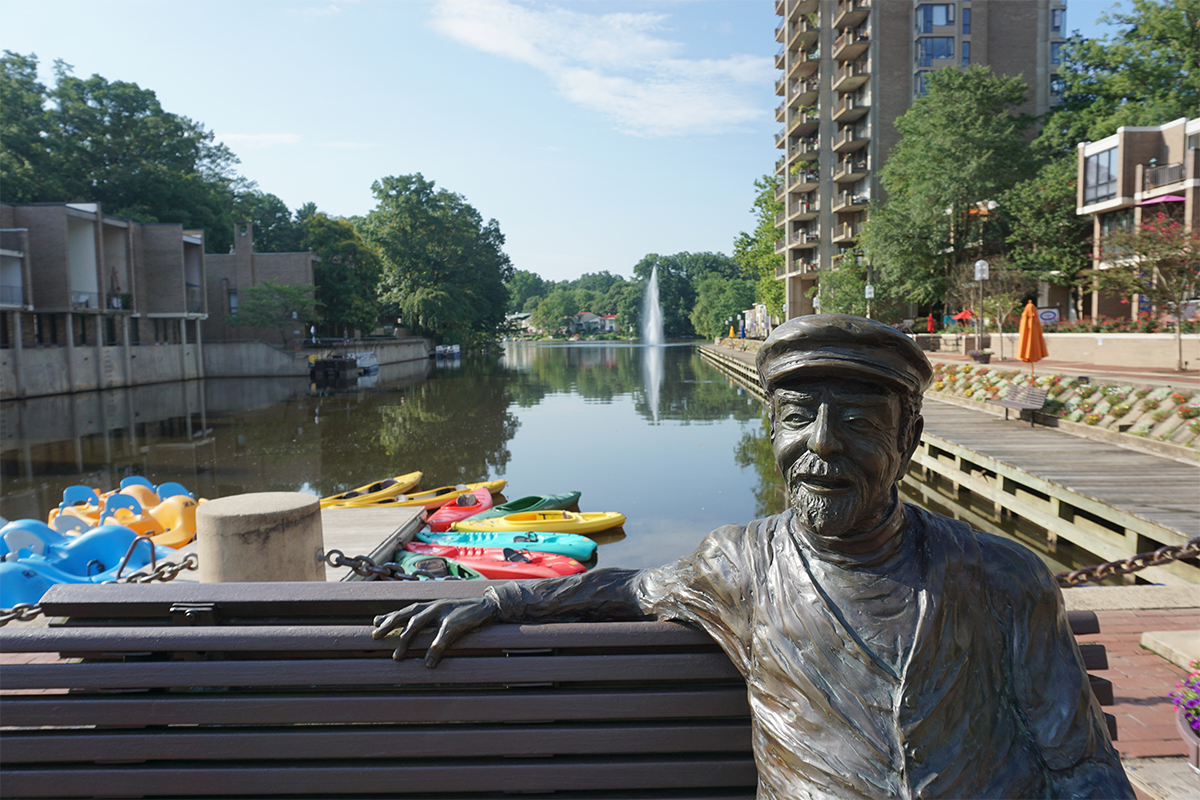
The Washington region has one of the most educated workforces in the nation. It also happens to be one of the healthiest places. That winning combo means that Northern Virginia residents aren’t necessarily ready to slow down when retirement age hits.
“They can continue to pursue their career for many, many years beyond what we would call normal retirement age,” says Susan Weinstock, AARP’s vice president of financial resiliency programming.
In a July 2018 study, AARP asked their members why they continue to work into retirement age. While some pointed to financial obligation, others said personal fulfillment. “It’s a reason to get up in the morning,” Weinstock says. “It’s a way to combat social isolation. You have to get up, go to work. You are going to be with people. All of those things. Working is a good thing.”
By 2022, AARP estimates nearly 35 percent of workers will be age 50 and over. For those that remain active in the workforce, reaching that milestone age offers an opportunity to regroup and revisit what’s important both professionally and personally. For many, that means trying on a new career or pursuing a passion. “It’s a great opportunity to expand their universe,” explains Weinstock.
If you’re nearing retirement age, what’s next for you? Northern Virginia Magazine spoke to several area seniors who took on second acts. Let their stories inspire you.
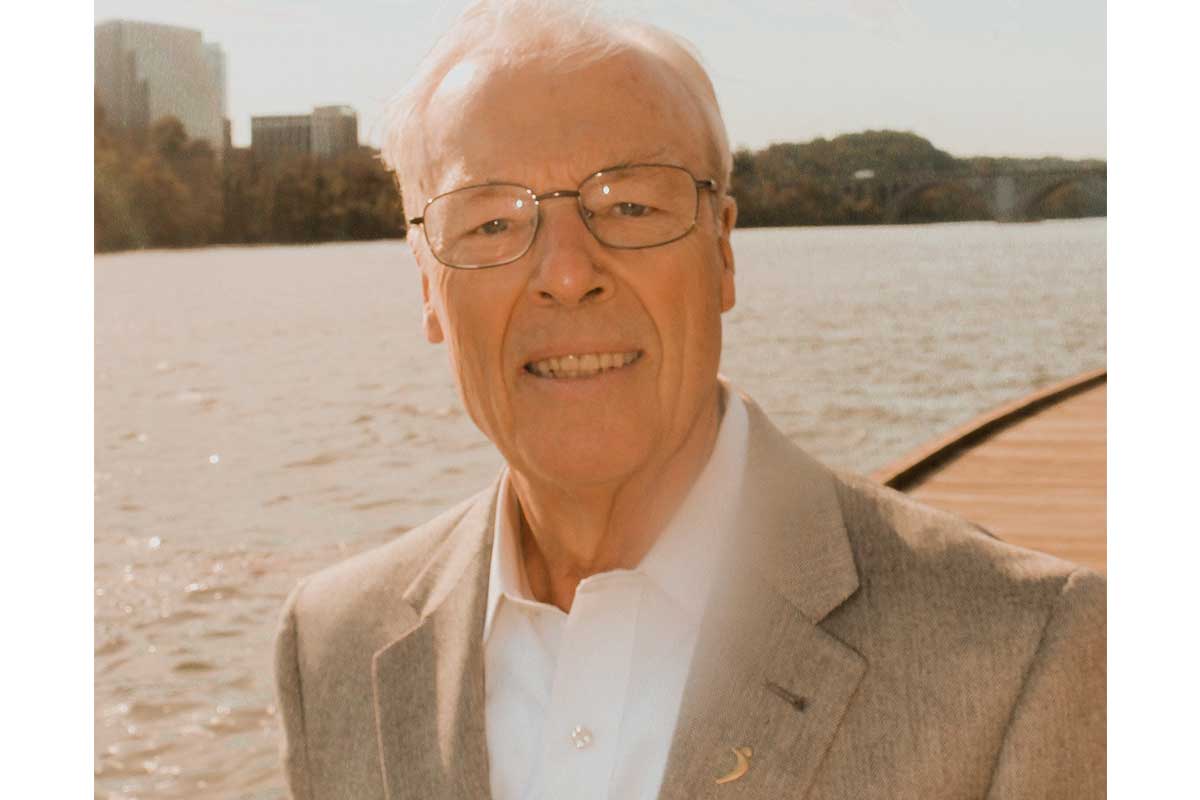
The Entrepreneur: “Call me retired but in denial.”
Matthew Lawlor has never been afraid to get in the trenches with his employees. Earlier in his career, when he was an executive with Chemical Bank (now JP Morgan Chase), he would go to a Manhattan branch every Friday and work as a teller. “I never could balance my account at the end of the day,” he jokes. “The tellers that were back there with me enjoyed seeing the boss respecting what they were doing. Obviously, I shared that respect for them. I couldn’t do it. I couldn’t balance the account and smile at customers at the same time. The boss isn’t somebody to oversee so much as coordinate. We are equals. That builds team. Everybody has a role.”
Lawlor, now 71, says it was that mutual respect and teamwork that held the key to his professional successes—and it also served him well when he launched his first business.
Lawlor founded Online Resources, a Virginia-based internet banking corporation, in 1989 and served as its chairman and CEO for 20 years. Once every six months, he would go into the call center to handle incoming calls. “The point was ‘I respect what you are doing,’” he says. “You do it better than I do, and together we make a team. Connection is the key in building teamwork.”
When he felt it was time to move on, Lawlor wanted to give back but also feed his love of entrepreneurship. In 2013, he founded the nonprofit Ceca Foundation as a way to celebrate caregivers for the physically and developmentally disabled. He was inspired after witnessing the care his mother received. Currently in around 35 facilities, the foundation gives awards and cash bonuses to standout staff members.
“If you go to skilled nursing homes or many healthcare communities, it is a struggle for these institutions to deliver healthcare,” he says, noting they’re often squeezed by regulations and state and federal spending requirements that impact their ability to pay good wages— which in turn leads to staff turnover and compromised patient care.
“It’s very obvious that anything you can do to motivate people who are touching the patient or a resident in a nursing home, anything you can do to reward them (is appreciated) because I think many are under recognized,” Lawlor says. “They are not paid a lot of money for what they do, but they are very important and their touch can make a difference to a patient.”
As someone who could technically be retired, the DC resident says he enjoys the flexibility of running his own nonprofit. It allows him time to travel and pursue other interests, yet also taps into his love of entrepreneur hopes to expand Ceca Foundation nationally. “I need purpose,” Lawlor says. “Call me retired but in denial. I retired for just one phase of my life. I need purpose moving forward. The skill set that I have is basically entrepreneurship. I’ve built organizations before. I am just redirecting my life now to something that is building an organization that is really designed not for making money, but for providing benefits for others.”
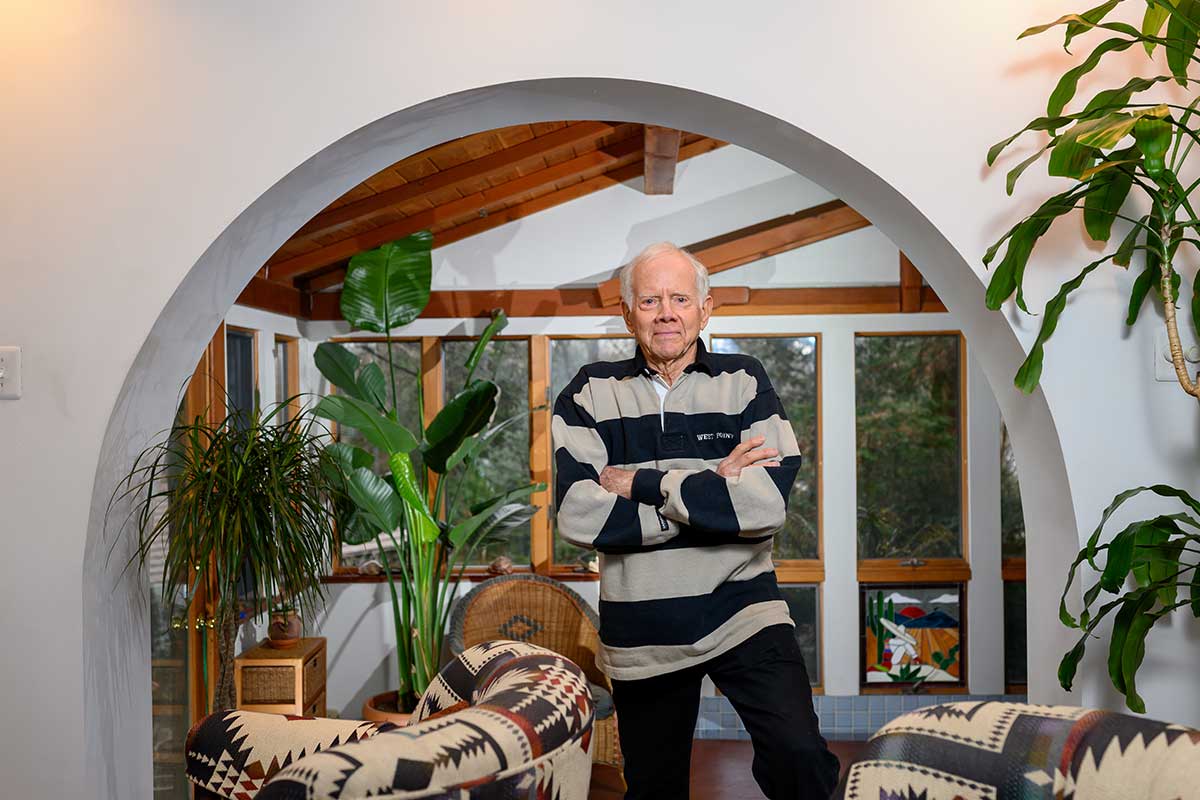
The Renaissance man: “You’ve got to make every day count.”
Even before reaching retirement age, Dr. Charles Toftoy was constantly evolving in his professional career. The 83-year-old has worked in three different professional sectors throughout his life: military, private and academic.
Born in West Point, New York, his father taught at the renowned military academy, where Toftoy would graduate from in 1958. “When you go through West Point, with its discipline and leadership and rigid, tough program, it really molds you into a new person,” he says.
“When you go in there you are just a civilian, and when you come out you are this solid character. The duty, honor, country that they really press on you stays with you the rest of your life no matter what else you do. … You learn to take care of the guy or the woman soldier next to you. You would give your life for them if you had to, and they all feel that way.
The U.S. Army Airborne ranger and infantry officer received two Purple Hearts, among other commendations, during two tours in Vietnam, fought in some of the conflict’s worst battles and lost 300 friends to the war. “It makes you appreciate life more,” he says. “You’ve got to make every day count and get the most out of every day and basically do the best you can do at everything. Never give up. That’s a big one.”
After serving for 20 years, including two tours with the Pentagon, Toftoy joined the corporate world working as a general manager for Raytheon Service Company and as the director of marketing for Lier Siegler Inc. Twelve years into his corporate career, he began teaching part time as an adjunct professor at American University, Trinity College, Southeastern University and George Mason University.
He then made the switch to full-time teaching at George Washington University for 17 years, where he became director of the Entrepreneurial Small Business Program. His goal was not to just be a professor, but to be actively involved in the school. This included running a program to help area homeless and serve as a professor advisor for the women’s basketball team. “My makeup is that I am always trying to benefit others,” he says. “I don’t really care about myself. I really want to benefit others. I think that is why we are in this life.”
Now retired, Toftoy is as busy as ever. He and his wife Patricia bring their Yorkshire terrier, Zoe, to hospitals, rehabilitation centers and adult senior centers for shows. A certified licensed therapy dog, Zoe does about 20 tricks for the audiences that Toftoy taught her at their Arlington home. “Every time we walk out (of a show), we have this good feeling,” he says. “They are smiling where as they weren’t before. They are laughing. They are cheering. They are applauding.”
Toftoy is also a published author, penning two thrillers: It’s In the Eyes and its sequel, Eyes of Cold Case Killers. His wife suggested his next book be one to help others, so he wrote Amazing Fireside Talks: Intriguing Thoughts to Awaken You, which explores big topics such as anxiety, happiness and depression. He is now about halfway through his next book, which will focus on historical blunders.
Until recently, Toftoy was also a committee member for the Northern Virginia Senior Olympics and has competed in more than 30 events over the years, qualifying at the state and national level. He’s done races like the 1,500-meter and 400-meter and javelin throw, but has now given those up in favor of pickleball, where he plays doubles and singles.
“I just think you need to have a challenge,” he says. Competing “gives me a challenge and a goal. I am in training 12 months of the year, so physically that keeps me going. I’ve got to be in good shape to meet that. I put that out there for me so I keep reaching for it because I don’t want to be a couch potato.”
The Teacher: “I have to like what I’m doing.”
Dr. Elliott B. Jaffa, 74, has three criteria for a job: It’s got to be fun, it has to be financially rewarding and he’s got to like who he’s working with. “I sit home and wait for the phone to ring,” he says. “If it rings, it rings, but if I was 25 years old, I would be annoying the hell out of the world.”
The Arlington resident’s professional career began while earning his doctorate in school psychology from the University of Maryland. A nonprofit school for children with emotional and behavioral issues was opening in McLean and he was hired as its director. He started with four kids in a two bedroom house. In four years, the school grew to 135 students. Jaffa moved on to another school and helped to make it profitable in a year and a half. “Every penny I made, when I got enough, I would give it to (my financial advisor) to invest for me,” he says.
With plenty of money socked away by age 22, Jaffa asked his advisor if he could retire when he turned 35. He said he could under three conditions: He could drive any car he wanted, but not a Bentley or a Rolls Royce. He could have a nice home, but not a castle in Spain. He could also take two vacations a year, but not cruise around the world 365 days a year. Jaffa was OK with these somewhat tongue-in-cheek conditions, so he retired from his job in the late 1970s as a behavioral psychologist.
But he never stopped working. He moved on to Open University, a DC-based school that let people teach classes on any topic they want while splitting the profits. Jaffa wanted to provide classes that were fun, made money and got media attention, he says. He started with a class called Chutzpa 101, “because if I taught ‘How to Decorate Your Thanksgiving Day Table,’ I’ve got three people there,” he says. “There’s no money in it. I’ve got to fill the room.”
People took notice and his classes like How to Pick up Men (and Women), How to Find and Keep a Lover and How to Make $1,000 A Week and Still Keep Your Job quickly filled up. He was profiled by multiple media outlets, including The Washington Post, Los Angeles Times and the Dallas Morning News, and also threw singles parties a couple times a year.
During this timeframe, Jaffa also developed more than 20 corporate training programs, which he continues to teach today. Known as a marketing psychologist and consultant, he focuses on topics like strategic and creative recruitment and retention, trade show training and creative problem solving.
During a session, you won’t find him sitting behind a desk droning on though. Jaffa is standing up, engaging his audience through laughter and building a relationship through relatability.
For trade shows, he doesn’t hand out the standard pens and key chains for his clients. Instead, he grabs attention with stunts like hiring a baby elephant to get you to remember his client’s booth. “You have to like me before you like my product,” he says. “You have to like me before you like my company.”
Jaffa was once asked how he comes up with his ideas, and it arrives back to having fun. “I have to like what I am doing,” he says. “That’s what drives me. I am a people person. I’m an extrovert. … For the last 38 years, I’ve been doing what I want.”
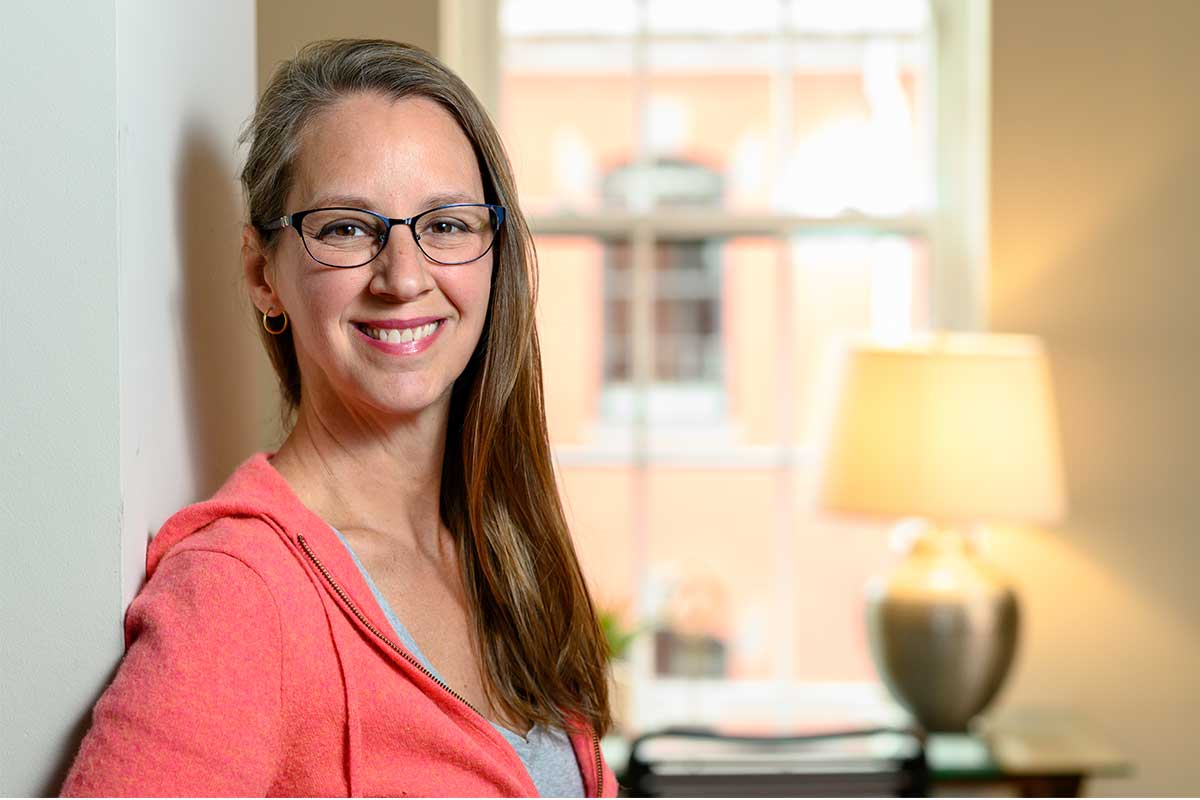
Love: Take Two
Catherine McClellan wanted to meet someone new, but she was finding dating at an older age a challenge. The divorced psychometrician runs her own business and works from home. Most of her female friends are married or in relationships and didn’t know single men her age. She considered online dating apps but heard from friends that they were time consuming.
“People said ‘You can meet people doing things,’” she recalls. “Well, that’s fine except I’m not 20 and I don’t want to go to a bar. I don’t drink alcohol. There is no logical way to meet somebody new.”
So she went the old fashioned route and found a matchmaker. Three Day Rule, a matchmaking company with an office in DC, foregoes the popular swipe right/swipe left process for analog matchmaking. “The thing that was appealing about (a matchmaker) was the idea that my (dating) choices are not working all that great for me,” she says. “Maybe I should have somebody who looks at me more objectively and has professional skills in this space, because maybe they will do a better job than I would do for myself. Maybe (find) somebody who would be different than I might normally meet or I might normally choose, which probably would be a good a thing,” McClellan says.
Her requirements: A man who wouldn’t be intimidated by her Ph.D., the fact she is financially comfortable and owns her own business.
Tom, an Alexandria resident who has a background in law enforcement, was her first match and she was drawn to his funny, outgoing and social nature. “He’s very different than I am and he’s very different than anyone I have ever dated,” says McClellan, who was living in DC when they were matched.
The two began dating and got engaged in September 2018. They are now married. McClellan was recently recruited for a job in Melbourne, Australia. She left in January and he’ll will follow in the spring.
She recommends a matchmaking service as long as you are willing to be open minded. “You have to be willing to say ‘OK. I am willing to give this person a shot even though they are not necessarily somebody I would have picked.’”
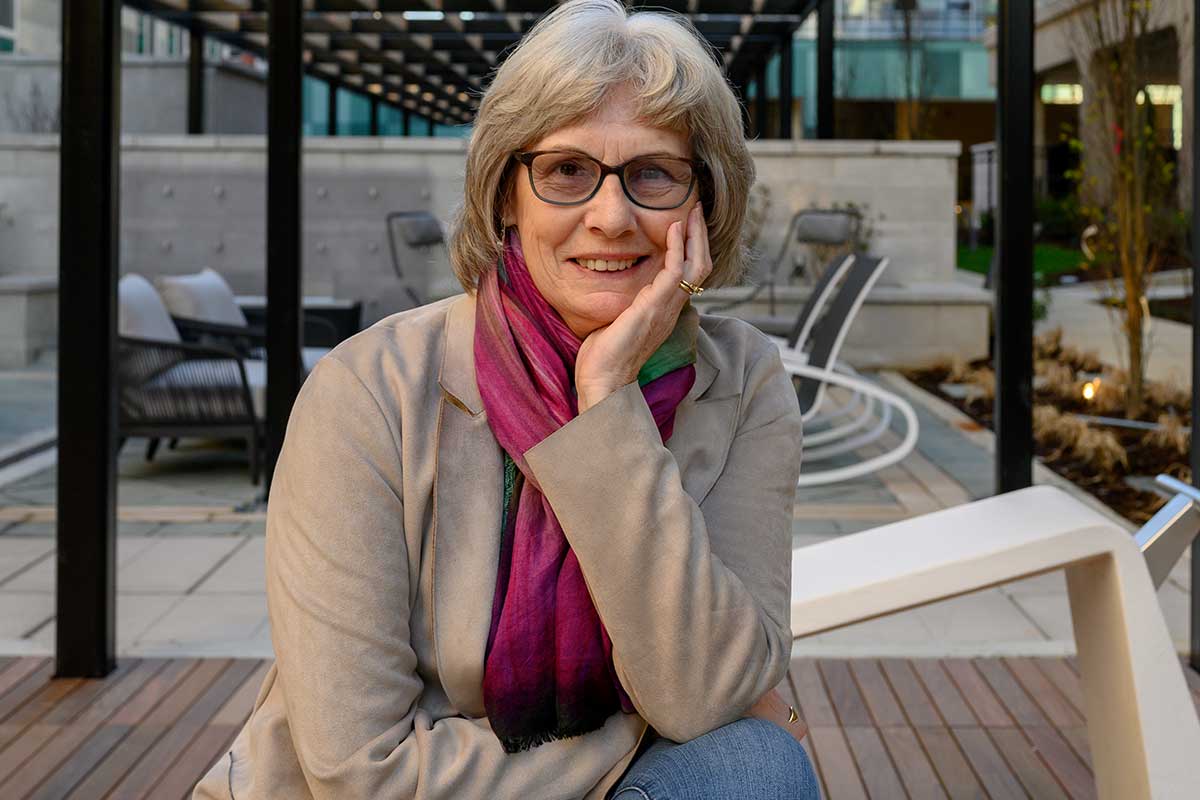
The Volunteers: “Get out there and try it.”
Elisabeth Brown was invited to go to a meeting about Experience Corps by a neighbor who was interested in the program. Launched by the AARP Foundation, Experience Corps is a tutoring program that pairs senior volunteers with inner-city school children who are not reading at grade level. The program is set up in more than 20 cities across the country, including Baltimore and the greater DC region.
Brown’s neighbor decided that the program wasn’t for him, but she decided it was just what she needed.
“The children are just delightful,” says Brown of the students she’s tutoring. “It’s a real pleasure to be around them.”
The 63-year-old DC resident started in August and goes twice a week to Van Ness Elementary School in southeast DC to help pre-K students.
Born in the United Kingdom, Brown has lived in many countries, including Germany, Canada and the Bahamas, and has had many careers. She worked as a medical assistant, owner of a photography business and a stay at home mom. Her husband is a journalist.
With a lifelong love of reading and writing, Brown wanted to volunteer as a way to give back to children. Her daughter is now 38, but Brown started reading with her at 10 months. Her daughter was reading fluently before she was 3 years old and now holds master’s degrees in French, international relations and library and information studies. Brown’s son also holds a master’s degree in history.
“I thought about it when I saw what the program was about and I said how fortunate my own kids have been,” Brown says. “It might be good to try and help somebody else’s. Reading is everything.”
Brown notes she gets a good feeling from volunteering her time with the program. “Children, once they can read, (the skill) can take them further. … Once you teach a child to read, literacy can lift them up out of poverty. That is such an important thing today. There are too many kids that cannot read.”
She encourages other seniors to get involved in the program or something else that gives back. “Just go for it,” she says. “It’s so much nicer to be able to do something with your spare time and feel you are still useful, because so many people when they get older they don’t feel useful. They feel like they have been tossed aside. Get out there and try it. You will find something where you fit.”
“You have to fill your life with something.”
Fellow Experience Corps volunteer Earl Robinson spent years in the accounting and finance world before leaving in his early 50s, but he didn’t find enjoyment in his retirement. “I was F Fsitting at home, wasting away,” he says. “I was gaining weight. My health started deteriorating.”
One day, he saw an ad for the AARP Foundation Experience Corps and “I said ‘this is an opportunity to reach out to the community and to help young minds, young kids, and to meet other seniors and other people around my age’,” he says.
That was three years ago and today he volunteers five days a week at Patterson Elementary and four days a week at an after-school program, both in DC, doing oneon-one, small group and literary assistance for teachers of grades pre-K to third.
Initially, the 56-year-old only planned to do a few days a week, but the children kept asking him to come back so he added more days to volunteer. “They started learning more,” he says. “They started picking up faster and started moving a little bit quicker in their learning.
To see that lightbulb come on, they start lighting up. They become more involved with the class and with me tutoring them.”
The DC resident has been asked by others why he gives so much time to the students. His answer is simple: Because they need it. “It’s a win-win,” he says. “I am also winning and they are winning.”
Robinson enjoys seeing the children grow. The first class of children he tutored are now in fourth grade and are overjoyed to see him in the school hallways. He feels the volunteering has given him a purpose. “I think after you hit a certain age, you feel that you’ve done everything you needed to do in life, but your life is continuing to go on,” Robinson says. “You have to fill your life with something. If you are just sitting at home watching television, there is not a purpose there. When you are giving back, whether it is one day a week or five days a week, you are still giving back to someone other than yourself and you feel more satisfied. Well, I do. I feel more satisfied that I am doing something for someone else other than myself.”
Want more senior living content? Subscribe to our monthly newsletter.



